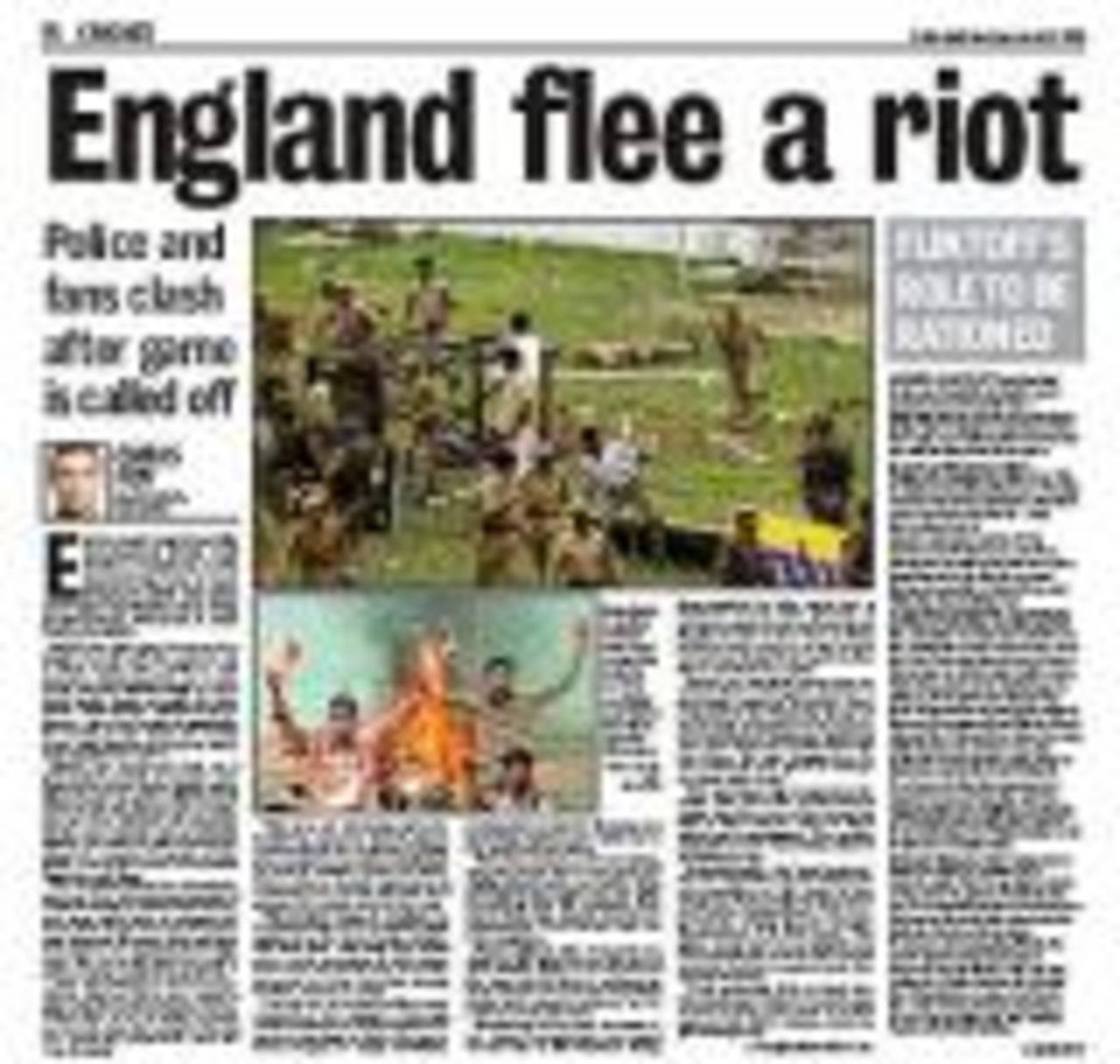The English newspapers reacted to the serious crowd trouble which followed the abandonment of the Guwahati ODI with almost resigned acceptance.
In the
Daily Telegraph,
Simon Briggs wrote that the town “a poor area in India's far north-eastern corner, has been viewed with concern by England's security staff ever since a bomb was planted here last month by a secessionist group. But yesterday's trouble stemmed from nothing more sinister than disappointment. There had not been an international here for four years, so levels of expectation were immense. The state government even went so far as to postpone elections which would have clashed with the match.”
“The situation was not helped by the fact that ticket refunds for abandoned matches in India are a rarity. But the ICC will need more than a bit of extra red tape if it is to find a way of persuading the Indian board that a repetition of these events would not be in its best interests.”
“Guwahati is politically volatile and elections were switched to avoid a clash with the game. As recently as last month, a terrorist bomb killed two people, and the ECB was monitoring developments in the build-up to the game. However, the scenes yesterday were spontaneous, stemming from frustration rather than more sinister motives.”
But he also flagged the inadequacies of the local officials.
“As ground host, the Assam Cricket Association should look at its own responsibilities. The covering operation was below-par and five English spectators among the crowd — all at the opposite end to the trouble — described information given over the public address as minimal. “All we were told was to be patient,” one of them said.”
“While the teams were at the ground fires had been lit on the concrete terraces and plastic water bottles thrown on to the outfield. Though unwelcome, these are scenes that regularly take place on the sub-continent.”
Of the tabloids, the Mirror headlined its report “Madness” and said that England already "had misgivings about travelling to this volatile outpost in the far north east”. And it warned that England now travel to Jamshedpur where, “in 1993, when a police strike reduced crowd control to a virtual free-for-all, Devon Malcolm was nearly killed by a nine-inch steel bolt which whistled past his head by inches.”
And in the Daily Mail, Chris Foy detailed how he had seen one spectator "dragged onto the outfield and given a savage beating with sticks." He also lambasted attempts by local officials to lay the blame on the umpires, warning that "the ICC may decide to take action against the BCCI, Indian cricket's governing body."
Martin Williamson is executive editor of ESPNcricinfo and managing editor of ESPN Digital Media in Europe, the Middle East and Africa

